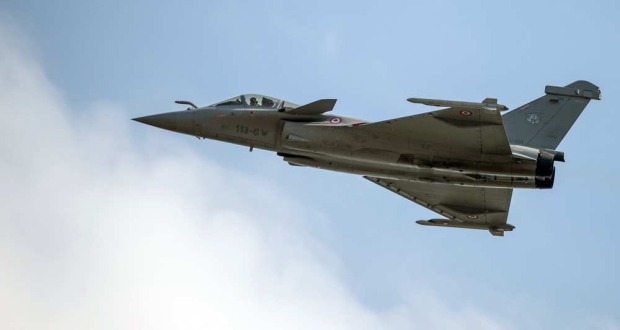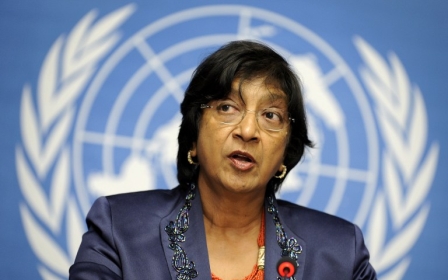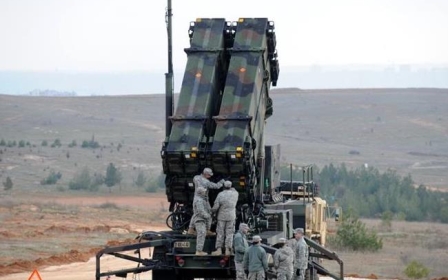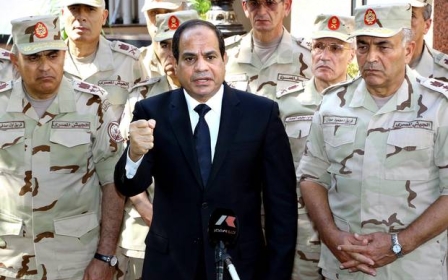France sells 24 fighter jets to Egypt after years of export woes
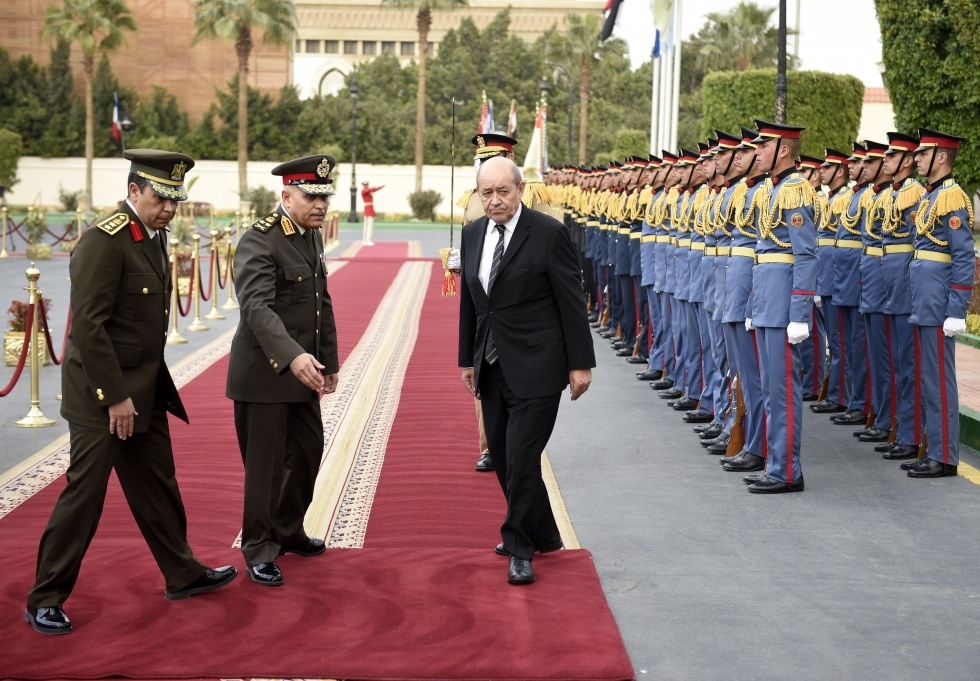
French Defence Minister Jean-Yves Le Drian visited Egyptian capital Cairo on Monday to ink a deal for the sale of military hardware worth up to $6 billion.
The shipment includes a warship and 24 Rafale fighter jets, which France began manufacturing in the 1980s.
Monday’s deal with Egypt is the first successful export contract for the Rafales, after numerous deals have fallen through.
“It’s an exceptional contract for France,” Le Drian told French radio station on Monday before embarking on his one-day trip to Egypt, where he was met by a military parade in his honour.
“The aircraft has a long history,” independent defence analyst Howard Wheeldon told MEE, “and the French have good experience in fast-jet production”.
For France, the deal is crucial after the failure of lucrative hoped-for contracts for sale of Rafales to countries including Morocco, Brazil, Saudi Arabia and the UAE, which in 2011 unleashed a rare attack against the “uncompetitive and unworkable” terms proposed for the deal.
India announced on Monday that a deal to buy 126 Rafales from France was “effectively dead” after three-years of difficult negotiations came to nothing.
Many have expressed surprise at the deal signed on Monday between Egypt and France, suggesting that France’s Rafales did not represent the best value for money for a cash-strapped Egypt which, despite boasting the largest air force in North Africa, is attempting to beef up its stockpile in the face of regional and domestic threats.
Insiders said on Monday that the high cost of the project was behind the failure of the Indian deal, while Safwat al-Ziyat, a retired Egyptian general and military expert, told the Anadolu Agency that previous deals for the sale of the Rafales had fallen through because other planes delivered the same capabilities “for a more reasonable price”.
A question-mark remains over the funding of the Egyptian Rafale deal, which was pushed through in just three months, and details of the financing of the package remain private.
French defence specialist Pierre Conesa said the deal could well have been underwritten by France itself, or by Saudi Arabia, which has poured billions into Egypt since the 2013 military takeover commandeered by President Abdel Fattah al-Sisi after mass protests.
US hesitation over Egypt rights record
Amid domestic budgetary pressure in France, the huge deal is likely to be welcomed by many - Le Drian on Monday celebrated what he called “a historic day for the Franco-Egyptian friendship”.
French politicians have also emphasised that Egypt could become a key player in the region.
In the run-up to the trip, Le Drian said that Egypt is a crucial player in stabilising a precarious Middle East, telling a French radio station that the North African country is “fighting the same battle as us against Islamic State”.
Egyptian warplanes launched a dawn raid in neighbouring Libya on Monday following the apparent beheading of 21 Egyptian Copts by Islamic State (IS).
However, monitors have expressed their concern at France’s decision to trade arms with Egypt, where activists say human rights are being severely restricted.
Amnesty International attacked the deal to sell weapons to a nation it accused of “alarming” rights abuses.
The US sends roughly $1 billion to Egypt annually in the form of military aid, which Cairo is mostly required to purchase US equipment.
The aid, suspended in 2013 after the military takeover, was restored in April 2014 - the US has since sent at least 10 Apache attack helicopters to Egypt.
But analysts say the US remains cautious about sending large amounts of weaponry amid criticism of the ongoing crackdown against opposition supporters in Egypt.
"I assume the US does not want to be seen selling new aircraft direct to Egypt, which is not exactly a stable government at the moment," Wheeldon said.
"So Egypt has gone to France, which does not have the same hang-ups regarding where they sell weapons".
European 'rehabilitation' for President Sisi
Despite critical statements made by the EU about Egypt’s human rights record, analysts say that Monday’s deal represents a shift towards greater acceptance, within France and Europe more generally, of Sisi’s rule.
“In the period after Sisi deposed President Morsi, and after the killing of protesters in Rabaa Square and elsewhere, there was quite a lot of disquiet in Europe,” according to Anthony Dworkin, a senior policy fellow at the European Council on Foreign Relations.
“There was a review of military assistance to Egypt in 2014.
“But in the context of heightened security fears across the region, Sisi has been very keen to present himself as a potential partner in counter-terrorism, and this deal represents the partial rehabilitation of President Sisi and a growing acceptance of his leadership”.
France has said that it will continue to be vocal in criticising Egyptian “excesses” despite the landmark deal.
“Just because we are selling these Rafales to Egypt doesn’t mean we agree with every point of their domestic policy,” French Foreign Minister Laurent Fabius said on Sunday.
"When there are excesses that are committed, we tell the Egyptian authorities - from our point of view - and we are hoping to move step by step towards more democracy.
"But the stability of Egypt is a very important point,” Fabius said.
According to Dworkin, “there is a sense that a tougher line wasn’t working to influence Egypt.
"At the same time, Egypt was and remains a valuable partner in counter-terrorism, as well as being a valuable source of arms exports”.
New MEE newsletter: Jerusalem Dispatch
Sign up to get the latest insights and analysis on Israel-Palestine, alongside Turkey Unpacked and other MEE newsletters
Middle East Eye delivers independent and unrivalled coverage and analysis of the Middle East, North Africa and beyond. To learn more about republishing this content and the associated fees, please fill out this form. More about MEE can be found here.


